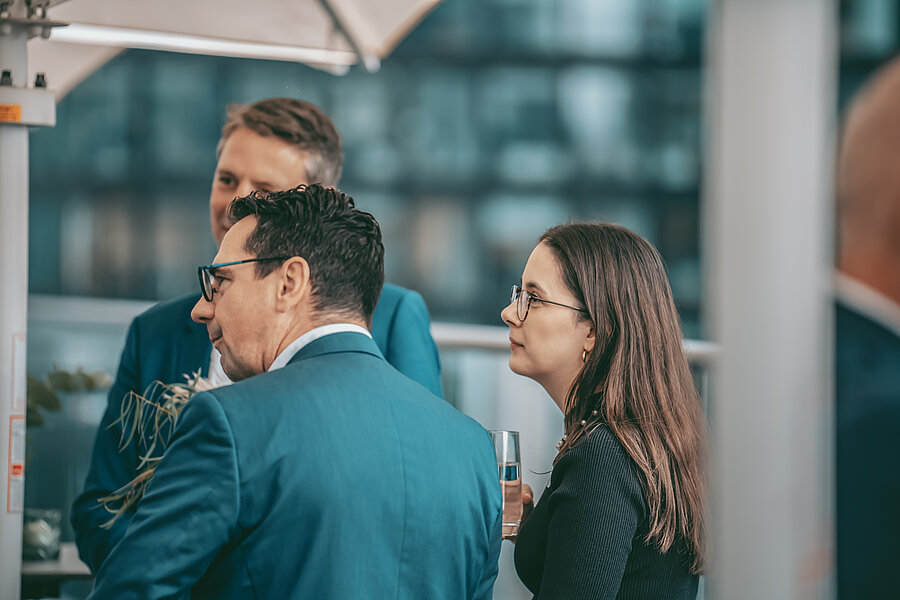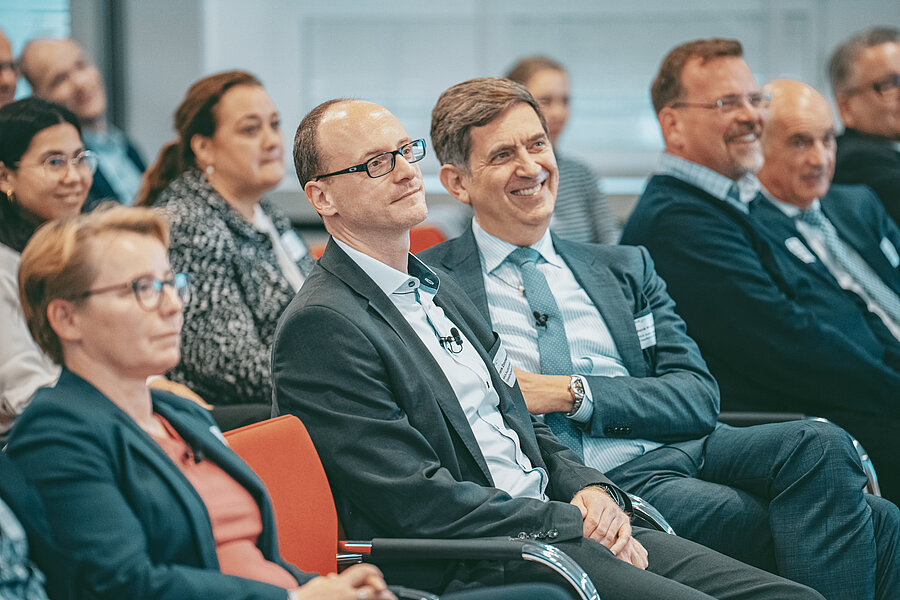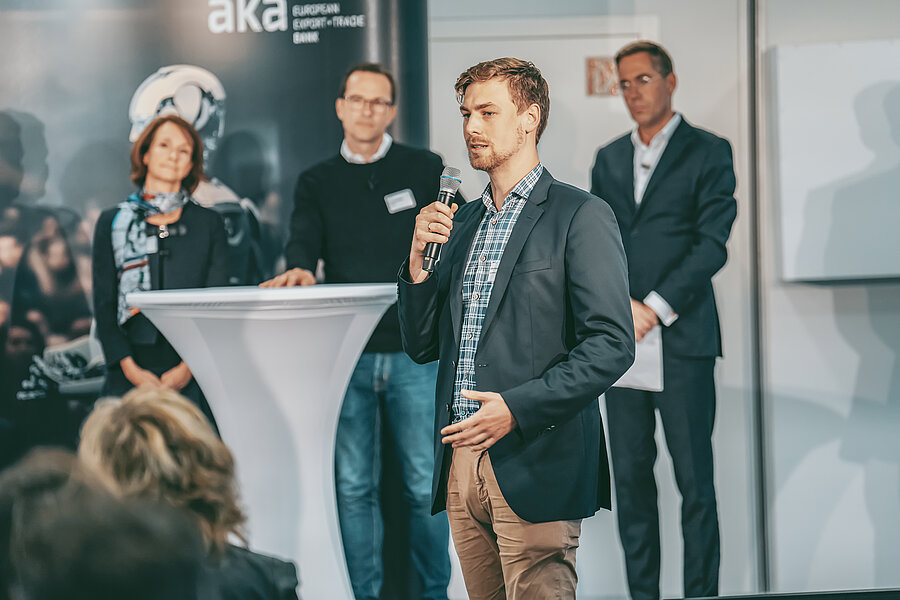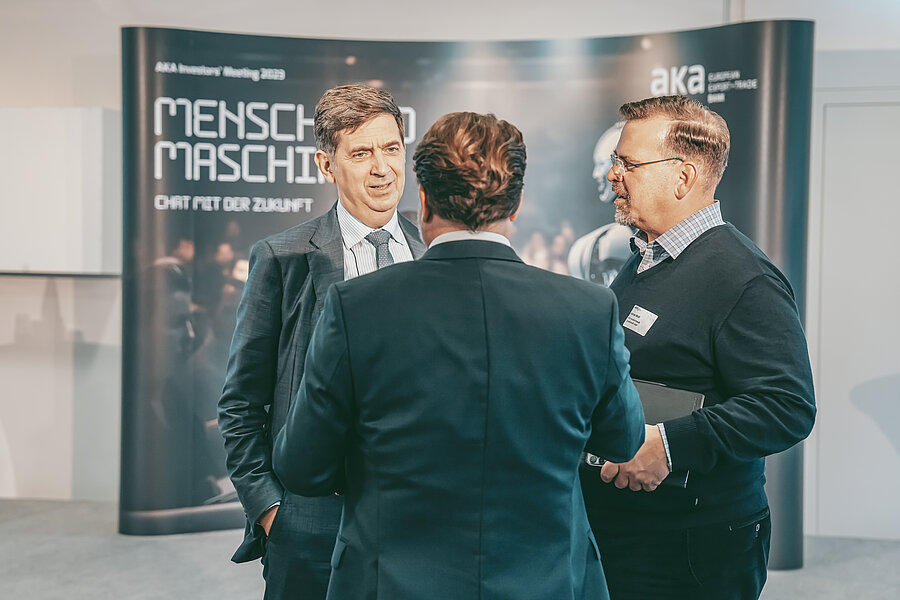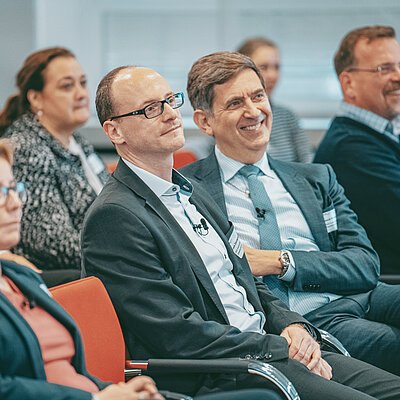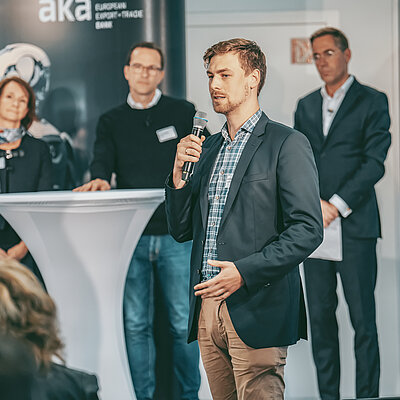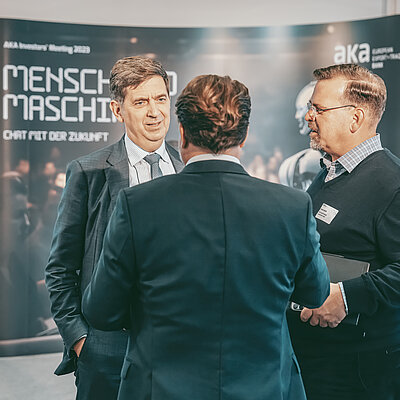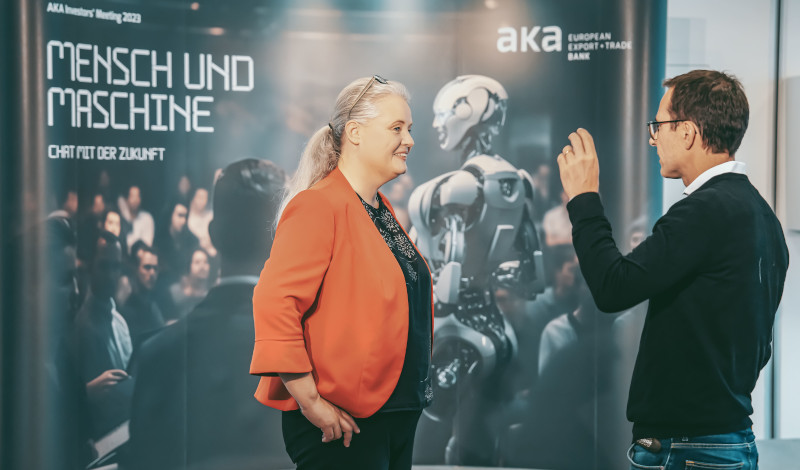
12 October 2023
AKA Investors Meeting 2023
HUMAN AND MACHINE – Chat with the Future
10 years of AKA Investors Meeting, 10 years full of interesting, tangible and, above all, up-to-date topics. From travelling back in time to the 1920s, to blockchain, mobility and the remeasurement of the world, the last few years have been exciting.
Read more about the past Investors Meetings
When natural intelligence meets artificial intelligence, it promises to be exciting - and so it was in October 2023, when AKA welcomed investors and market players from the finance community to the 10th Investors Meeting in Frankfurt with the slogan "Human and Machine - Chat with the Future".
After an entertaining presentation of the half-year figures for 2023 by AKA's management, Andreas Scholz (Managing Director of dfv EuroFinance Group) moderated the afternoon. As an introduction to this year's slogan, the guests listened to two insightful keynote speeches that explored the topic of artificial intelligence (AI) from different perspectives:
Professor Dr. Katharina Zweig, renowned AI professor at the University of Kaiserslautern, demystified the possibilities of AI with a simple calculation example and warned against premature euphoria. Excessive trust in artificial intelligence and viewing it as a quick solution to all problems also poses a danger. AI assessments should be based on high-quality data and clear ethical guidelines, as the often non-transparent "black box systems" are not suitable for every type of issue. Human intelligence is the better alternative for value judgements or singular, political decisions.
Her recommendation: Companies should carefully consider where they use AI, as human intuition and responsibility remain irreplaceable. "In the end, we decide for ourselves, even with AI."
Professor Dr. Katja Langenbucher, Professor of Law at the House of Finance at Goethe University Frankfurt, shed light on the legal challenges associated with AI, particularly in the financial sector. The integration of AI systems at board or supervisory board level no longer sounds so far-fetched? But in such a situation, who is responsible for decisions made on the basis of a recommendation from an artificial person? This raises the question of ownership.
Another problem is the explainability of AI decisions. To what extent is there a legal requirement for AI systems to be able to justify their decisions in a comprehensible manner? So far, there is no standardized answer to this question, and even experts disagree.
Her conclusion: The question of ownership for board members in AI decisions remains complex: While the Business Judgement Rule allows recourse to external advice, the question of trust in AI recommendations leads to ongoing debates. Board members must always make risk assessments and AI can support them in this, which is why it should not necessarily be excluded from board decisions.
Ulrich Leuchtmann, an experienced currency market expert, provided insights into the subtle differences between human and artificial intelligence. He emphasized the role of human skills such as creativity, judgement, recognizing controversy and pointing out opposites, which AI cannot replace. He is firmly convinced that no AI will take his job any time soon - although he would have no objection to sleeping a little longer in future if the texts were pre-generated by an AI.
Olly Salzmann, Deputy Chairman of the Board of KI-Park Berlin, an association that brings together over 100 organisations and companies. This collaboration of different competences and backgrounds creates potential for innovation and progress. The high level of investment currently being made in this area is accelerating development processes. He is critical about the fact that these investments are currently being made primarily in technical infrastructure and not enough in researching and developing machine learning.
The audience guest Erik Kaiser was also an asset to the event. He is Co-Founder, CEO & Manag-ing Director of Summetix, a start-up founded at TU Darmstadt that specializes in large language models. The company has developed an algorithm that analyses customer feedback from various sources and filters and clusters information. Summetix promises that this will give companies an information advantage, enabling them to react to market trends and movements at an early stage.
The subsequent discussion with the audience showed that some companies are already working intensively on the use of artificial assistance or are already using it. However, one thing is very clear: Without humans it is not possible!
IMAGE GALLERY
